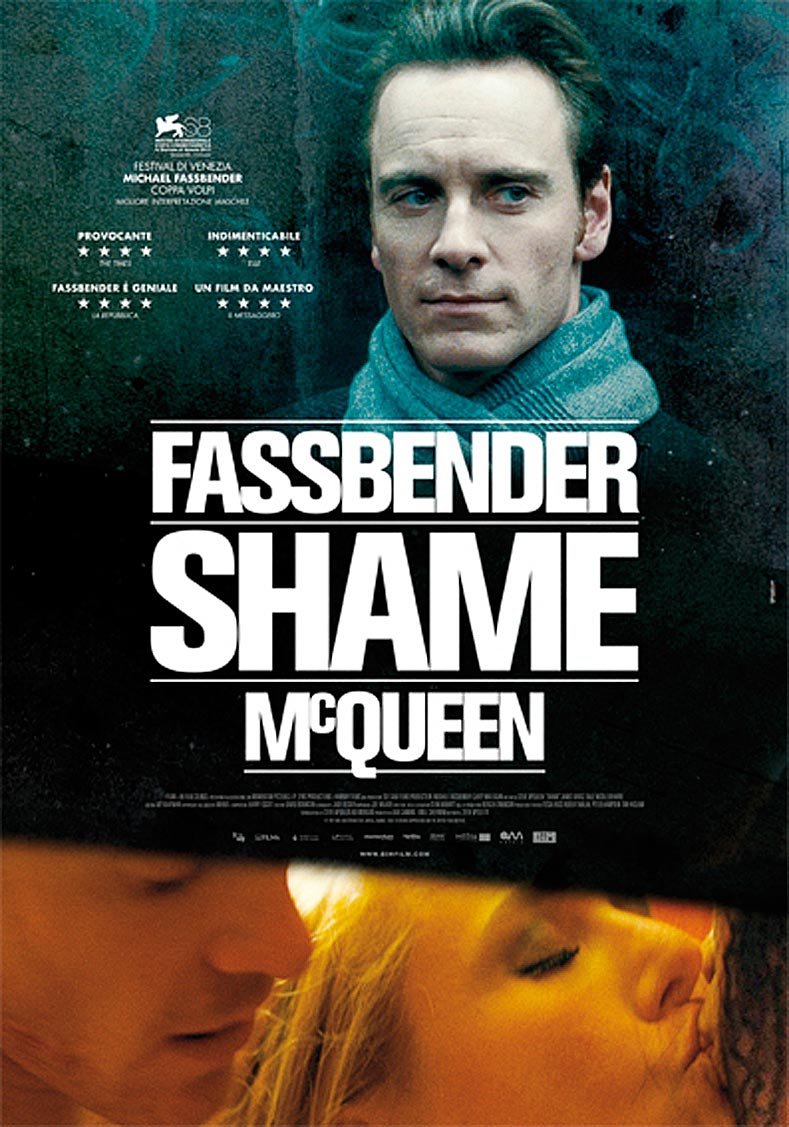
A very good film. Why? It gave the desperate account without glamorising sex addiction. It provided enough information to use my brain and fill in the gaps. The director used for me good cinematography. No fast editing apart from in the frenzy of sex. It gave an effect of being in and out of sexual blackout. The still camera and long sots gave a sense of the despair, of nothing left to give within this man. A functioning, icy, isolated man. There was a lack of colour really adding to this atmodshpere of gloom amidst what othrs would find amusing and would appear glitzy and desirable. And there was no solution. It left the man in his despair. Locked in his cycle of addiction not knowing how to get out.
If only I could have informed him about SLAA and SA. There is a way out. There is a better life to be had. There is intimacy beyond sex to be discovered.
Michael Fassbender does not seem to have another way to act. So in fact this part suited that about him. He is good looking but far too thin to be attractive. How odd it is that I should see beyond his face. I thought he was good looking in Prometheus but again was very wooden in is acting. It could just about pas as he was after all playing the part of David the Robot. Maybe in another role he would have a chance t show something more of him. BUt I think even in Inglourious Basterds his role was similar. Apparently he's in A Dangerous Method. I wonder how good he was at playing Jung?
I would give Shame a 4.5/5 - worth seeing according to me. Who said they didn't like it? I can't remember who it was - oh SH at work I think. I'll have a chat with her now I've seen it. Funnily enough I though the director Steve McQueen used shots that could have been influenced by Tarkovsy. And SH likes his films very much. I liked the angles he used and the abstract out of objects. Long shots and still cameras seem to work well for me.
Empire says ...New York professional Brandon (Fassbender) thinks he is a normal guy with a robust sexual appetite. But the unexpected arrival of his damaged sister Sissy (Mulligan) forces him to realise that he might have a problem...
A film about sex addiction from the team that made the IRA strike drama Hunger was never likely to be a frothy, titillating romp, and the film Steve McQueen has made — co-written with playwright Abi Morgan — is every bit as intellectually austere as one might imagine. It is also recognisably from the same well; though it is set in the modern day, takes place in the US and is seemingly not in the least bit political, it is a film about free will and the age-old battle between body and soul. In Hunger, Bobby Sands’ soul won that battle, but Brandon in Shame is not so fortunate: he thinks he’s a hedonist when in fact he’s a slave, both to his body and its desperate, physical need for contact.
The film even begins as a horror film might, with an ominous orchestral score and Brandon on the subway, making eye contact with the woman opposite. First he smiles, and she smiles back, but his gaze never drops and she becomes nervous. Flirtation becomes pursuit, with Brandon’s eyes narrowing, the smile losing its good humour, the body language turning predatory as the woman, now flustered, leaves, trying to lose him in the crowd. She does, and the whole film is here in microcosm: when he realises he’s lost her, Brandon’s bravado melts into child-like disappointment. What will he do now? From the start, the mask is slipping.
For a character study of such depth and intimacy, it helps to have a leading man who can rise to the challenge, and fortunately Shame’s intellectual rigours are leavened by a tour de force performance by the mighty Michael Fassbender. He gives Brandon depth and humanity; this is not, strictly speaking, a simple male-ego-in-crisis movie, even though it does play as a slightly more complex reworking of Alfie. Played by Fassbender, Brandon is a regular guy, albeit someone who keeps his mental wounds hidden from the world and maintains an admirable regime of denial.
That we can understand and believe in Brandon as a man on the verge of unravelling comes down to another remarkable performance, by Carey Mulligan as Sissy. It’s too small a role for her by far, but she works wonders with what she has. Seeing Sissy — theatrical, flaky, self-harming and self-
sabotaging — sets Brandon’s mind reeling. Are they the same? Deep down, he decides, they are, which is a realisation that is key to the eye-popping last act. It is not, however, a film without humour and warmth, provided respectively and in equal measure by James Badge Dale as Brandon’s boss and Nicole Beharie as his secretary, and it is these supporting players that give Shame its potency. The film lurches fatally into melodrama in its closing minutes, but although it adds a grim, moralistic aftertaste, it isn’t enough to derail an unflinching, moving study of 21st-century loneliness.
Verdict
Brave, beautifully acted and emotionally revealing — an early strong contender for the most provocative and compelling film of the year.

Reviewed by Damon Wise
Brave, beautifully acted and emotionally revealing — an early strong contender for the most provocative and compelling film of the year.

Reviewed by Damon Wise
Bliss
XX
No comments:
Post a Comment